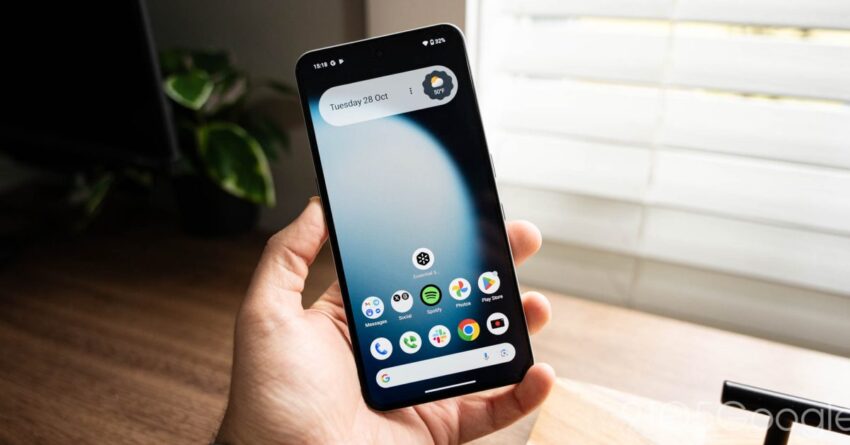
nothing will let users uninstall almost all Nothing has announced that users will soon be able to uninstall nearly all of the bloatware apps included with its latest smartphone, addressing a common concern among consumers.
nothing will let users uninstall almost all
Background on Nothing Technology
Founded by Carl Pei, co-founder of OnePlus, Nothing Technology aims to disrupt the consumer electronics market with innovative designs and user-centric features. The company’s first product, the Nothing Ear (1) earbuds, garnered attention for their transparent design and competitive pricing. Following this, Nothing launched its first smartphone, the Nothing Phone (1), which received mixed reviews but established the brand’s presence in the smartphone arena.
As the company continues to evolve, it has introduced its latest smartphone model, which has sparked discussions regarding its software ecosystem, particularly concerning pre-installed applications.
Understanding Bloatware
Bloatware refers to software that is pre-installed on devices, often by manufacturers or carriers, which may not be useful to the end user. This can include apps that are seldom used, promotional software, or services that the user may prefer to uninstall. Bloatware can consume valuable storage space, slow down device performance, and clutter the user interface.
In the context of smartphones, bloatware has been a longstanding issue, with many users expressing frustration over the inability to remove certain applications. This concern has led to a growing demand for devices that allow greater customization and control over the software experience.
New Developments in Nothing’s Smartphone
The latest smartphone from Nothing has introduced several new applications, many of which are developed by Meta. These apps have raised eyebrows among users, particularly because some of them were initially non-removable. This decision has been met with criticism from consumers who value the ability to tailor their devices to their preferences.
Meta’s Role in the Ecosystem
Meta, formerly known as Facebook, has a significant presence in the mobile app ecosystem, with applications like Facebook, Instagram, and WhatsApp being widely used. However, the inclusion of these apps as pre-installed software on Nothing’s devices has led to concerns about user autonomy. Critics argue that users should have the option to uninstall any software they do not wish to use, especially when it comes to applications that require extensive permissions and data access.
Upcoming Changes: User Control Over Bloatware
In response to user feedback, Nothing has announced that it will be rolling out updates later this month that will allow users to uninstall nearly all of the pre-installed bloatware. This decision is a significant shift in the company’s approach to software management and reflects a growing trend among smartphone manufacturers to prioritize user experience.
Implications for Users
The ability to uninstall unwanted applications is a critical feature for many smartphone users. It not only enhances the overall user experience but also allows individuals to reclaim storage space and improve device performance. By enabling users to remove bloatware, Nothing is positioning itself as a consumer-friendly brand that listens to its audience.
This move could also have broader implications for the smartphone market. As competition intensifies, manufacturers may feel pressured to adopt similar policies regarding bloatware. The shift towards user-centric design could lead to a more streamlined and customizable smartphone experience across various brands.
Stakeholder Reactions
The announcement has elicited a range of reactions from stakeholders, including consumers, industry analysts, and competitors. Many users have expressed relief and satisfaction at the prospect of regaining control over their devices. Social media platforms have seen discussions about the importance of user autonomy in the smartphone experience, with many praising Nothing for its responsiveness to feedback.
Industry analysts have noted that this decision could enhance Nothing’s reputation as a brand that prioritizes user experience. By addressing a common pain point, the company may attract new customers who are seeking alternatives to more established brands that have been slower to adapt to consumer demands.
Competitor Responses
Competitors in the smartphone market will likely be monitoring the situation closely. Brands that have traditionally included extensive bloatware may feel compelled to reconsider their strategies in light of Nothing’s decision. This could lead to a ripple effect, prompting other manufacturers to offer more flexibility in software management to remain competitive.
Future Updates and Features
In addition to the ability to uninstall bloatware, Nothing has hinted at further updates that may enhance the overall user experience. These updates could include performance improvements, new features, and additional customization options. The company has indicated that it is committed to refining its software ecosystem based on user feedback, which could lead to a more robust and user-friendly interface in future iterations of its devices.
Community Engagement
Nothing’s approach to community engagement has been a cornerstone of its brand identity. The company has actively sought feedback from its user base, using social media and forums to gauge consumer sentiment and preferences. This level of engagement not only fosters brand loyalty but also allows Nothing to remain agile in its product development and software updates.
Conclusion
As Nothing prepares to roll out updates that will allow users to uninstall nearly all pre-installed bloatware, it is clear that the company is taking significant steps to enhance user autonomy and satisfaction. This decision reflects a broader trend in the smartphone industry towards prioritizing user experience and customization. By addressing a common pain point, Nothing is not only improving its product offering but also setting a precedent that may influence the practices of other manufacturers in the market.
As consumers increasingly demand control over their devices, the ability to manage software installations will likely become a key differentiator in the competitive landscape of smartphones. Nothing’s commitment to listening to its users and adapting its approach accordingly may position it favorably in the eyes of consumers looking for a more personalized and user-friendly device.
Source: Original report
Was this helpful?
Last Modified: November 5, 2025 at 2:40 pm
6 views















